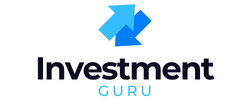Running a small business in 2025 comes with both incredible opportunities and serious risks. From property damage to lawsuits to employee injuries, one unexpected event could set your company back significantly. That’s where small business insurance comes in—it protects your operations, assets, and employees so you can focus on growth.
In this guide, we’ll explore the best small business insurance providers for 2025, explain what coverage they offer, how to get started, and provide both external resources and internal articles from Investment Guru to help you make smart financial choices.
Why Small Business Insurance Matters in 2025
The business landscape has changed dramatically with remote work, cyber threats, and inflation driving up costs. Insurance is no longer optional—it’s a key part of long-term stability. According to the U.S. Small Business Administration, over 40% of businesses never reopen after a disaster. Having the right policy can mean survival.
For more on how insurance providers stack up overall, see our comparison guide: Insurance Companies Compared: Which Is Best?.
Best Small Business Insurance Providers in 2025

1. Hiscox – Best for Microbusinesses & Startups
Why it stands out: Hiscox specializes in tailored coverage for very small businesses (1–10 employees). Policies are flexible and cover general liability, professional liability, and cyber insurance.
- How to get started: You can request a quote online in minutes. Coverage can begin the same day.
- Extra perk: Monthly payment plans with no additional fees.
2. Nationwide – Best for Comprehensive Coverage
Why it stands out: Nationwide is known for bundling property, liability, and auto coverage into their Business Owner’s Policy (BOP). Their customizable plans are ideal for businesses with physical offices or stores.
- How to get started: Contact an agent online or in person. They’ll tailor the policy to your industry.
- Extra perk: Access to risk management resources and legal consultation.
3. Next Insurance – Best for Online Policy Management
Why it stands out: Next is a tech-driven insurer designed for entrepreneurs who want 100% online management. Coverage includes general liability, workers’ comp, and tools/equipment protection.
- How to get started: Apply online, upload your business details, and get instant digital proof of insurance.
- Extra perk: Transparent pricing and discounts for bundling multiple policies.
4. Travelers – Best for Specialized Industries
Why it stands out: Travelers offers industry-specific policies for construction, retail, healthcare, and tech startups. They are especially strong in commercial auto and professional liability.
- How to get started: Travelers works through licensed agents; use their locator tool to connect.
- Extra perk: Risk control specialists provide safety training and workplace assessments.
5. Chubb – Best for High-Value Coverage
Why it stands out: Chubb is the go-to choice for businesses needing high policy limits, including larger small businesses with multiple locations. Their customer satisfaction ratings are among the highest in the industry.
- How to get started: Request a custom quote through their website or via a licensed broker.
- Extra perk: Excellent claims handling, often cited as the smoothest in the industry.
Key Types of Small Business Insurance to Consider
- General Liability Insurance – Protects against lawsuits, injuries, and damages.
- Professional Liability (Errors & Omissions) – Essential for consultants, accountants, and freelancers.
- Workers’ Compensation – Required in most states if you have employees.
- Commercial Auto Insurance – Covers vehicles used for business purposes.
- Cyber Liability Insurance – Critical in 2025 with rising ransomware attacks.
To dive deeper into specific policy types, see our guide: Best Life Insurance Policies in 2025 Reviewed (for comparison of long-term financial protection).
How to Choose the Right Insurance for Your Small Business

- Assess your risks: What could realistically happen to your business?
- Compare multiple providers: Use at least three quotes before deciding.
- Bundle policies: Save money with a Business Owner’s Policy (BOP).
- Review annually: Adjust coverage as your business grows.
For more financial growth tips, check out: How to Make $1 Million as a Small Business.
Comparison of the Best Small Business Insurance Providers in 2025
| Provider | Best For | Key Coverages Offered | How to Get Started | Standout Features | Average Monthly Cost* |
|---|---|---|---|---|---|
| Hiscox | Startups & microbusinesses | General Liability, Professional Liability, Cyber Insurance | Instant online quote & same-day coverage | Flexible policies, monthly payments with no fees | $40 – $80 |
| Nationwide | Comprehensive protection | Property, Liability, Auto, Business Owner’s Policy (BOP) | Online or through local agents | Risk management tools, legal consultation included | $70 – $150 |
| Next Insurance | Online-first businesses | General Liability, Workers’ Comp, Tools & Equipment | 100% digital application & instant proof | Transparent pricing, discounts for bundled policies | $50 – $120 |
| Travelers | Specialized industries (construction, retail, healthcare, tech) | Liability, Professional Liability, Commercial Auto | Apply via licensed agents | Risk control experts, workplace safety training | $80 – $160 |
| Chubb | High-value coverage & larger small businesses | High-limit Liability, Property, Cyber, Specialty coverages | Request quote online or via broker | Top-rated claims handling, higher policy limits | $100 – $200+ |
*Costs are averages in 2025 and vary by location, industry, and business size.
Choosing the right insurer depends on your company’s risks and budget. For a deeper dive into how insurers compare across industries, check our guide on Insurance Companies Compared: Which Is Best?.
FAQs: Best Small Business Insurance for 2025
1. What is the best small business insurance in 2025?
The best provider depends on your needs. Hiscox is great for startups, Nationwide for full coverage, Next Insurance for online policies, Travelers for specialized industries, and Chubb for high-value protection.
2. How much does small business insurance cost in 2025?
Most small businesses pay between $50 and $200 per month, depending on coverage type, industry, and number of employees.
3. What types of insurance do small businesses need?
Common policies include general liability, professional liability (E&O), workers’ compensation, commercial auto, and cyber liability insurance.
4. Is small business insurance required by law?
Certain types are mandatory, like workers’ comp if you have employees or commercial auto if you use business vehicles. Others are optional but highly recommended.
5. Can I buy small business insurance online?
Yes. Companies like Next Insurance and Hiscox allow you to apply, pay, and get proof of insurance entirely online in minutes.
6. How do I choose the right insurance provider?
Compare at least three insurers, check reviews, look for industry-specific policies, and consider bundling into a Business Owner’s Policy (BOP).
7. What is a Business Owner’s Policy (BOP)?
A BOP is a bundled package combining general liability, commercial property, and business interruption insurance at a lower cost.
8. Does small business insurance cover cyberattacks?
Not automatically—you’ll need cyber liability coverage, which protects against data breaches, ransomware, and online fraud.
9. How quickly can I get small business insurance?
With digital-first providers like Next Insurance, you can be covered the same day. Traditional insurers may take a bit longer.
10. Can small business insurance help with lawsuits?
Yes. Liability policies cover attorney fees, settlements, and damages if your business faces a lawsuit.
Final Thoughts
In 2025, the best small business insurance isn’t one-size-fits-all—it depends on your company’s size, industry, and growth trajectory. Hiscox is excellent for startups, Next Insurance works for digital-first companies, while Chubb is unbeatable for high-value businesses. The key is to start with a realistic risk assessment, compare multiple providers, and secure coverage before you need it.
If you’re also considering banking options, you may want to read our guide on Best Small Business Bank Accounts to pair financial security with the right insurance strategy.


